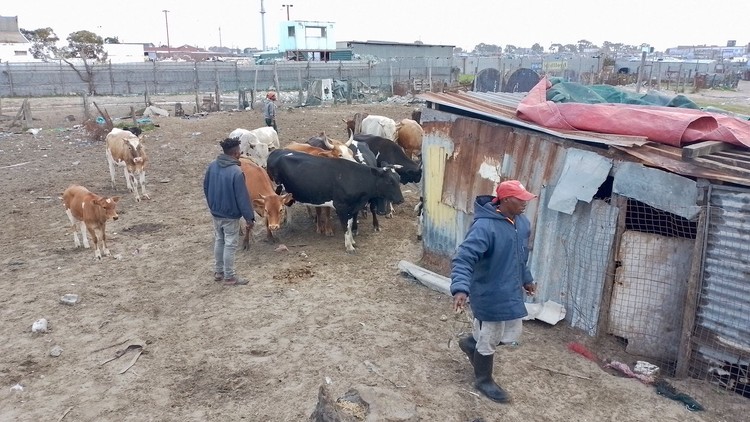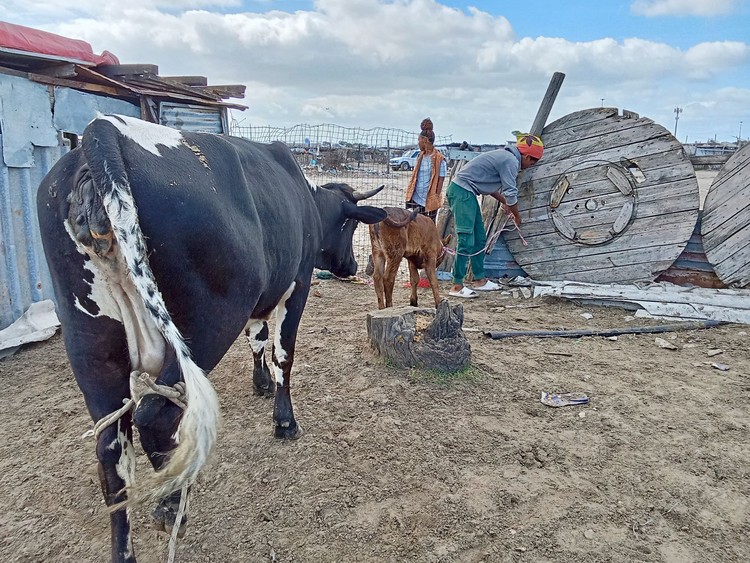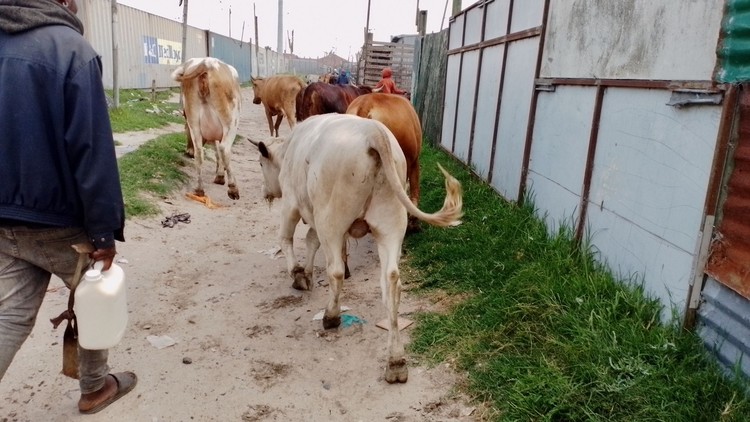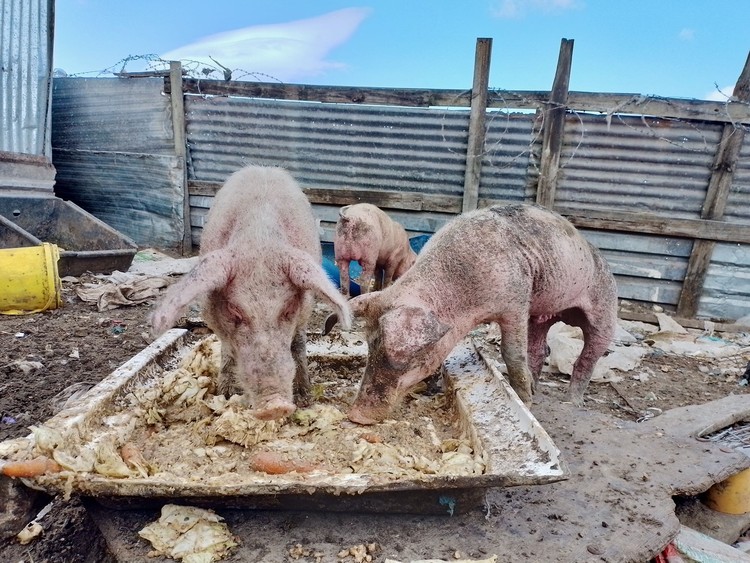Stock theft is making township farmers’ hard lives harder
Urban livestock are a soft target for criminals
Farmers guard their cattle in Philippi. Photos: Sandiso Phaliso
“In the last few years, I lost nine of my 15 pigs. Stealing animals here is rife, and once your stock is stolen, there is zero chance that you will ever recover them,” says Lwazi Evans, a young farmer in Philippi.
There are many people in the townships of Cape Town, such as Nyanga, Philippi and Crossroads, who keep cattle, goats, pigs and sheep. But they say they are seen as soft targets by criminals. Stock theft is a major and increasingly common problem for them.
“They are stolen to be sold for funerals and other traditional ceremonies,” says Evans. “It pains us to have our stock stolen, because we work hard and many years to get to the point of owning a flock.”
He began farming livestock about five years ago. He had started studying agriculture, but dropped out of university in his second year.
“Farming is our lives. It is what we do best, and having them stolen means we cannot put food on the table for our families,” says Evans.
The stock theft became so bad he left his family and now keeps his livestock at a site where there are other farmers. Working together, they can guard their animals.
The farmers sell milk at R10 a litre.
Lwazi Evans tethers a calf.
“Theft is the biggest contributor to our losses, because once an animal is lost there is no way of getting it back,” says Phumelele Saliwa. He has kept cattle and pigs in Crossroads for 15 years.
Saliwa has no confidence in the police. Like many of the farmers we spoke to he has not bothered to open any cases with the police when their animals go missing.
Saliwa worked at first for a few years for a group of farmers. He now has three pigs and three head of cattle. This is his source of income.
Finding enough pasturage is a difficulty faced by most township farmers.
“We ask schools, restaurants and street vendors to donate leftovers,” says Saliwa. His day starts early, collecting food for the livestock.
Cattle on their daily trek of up to 10km to find pasturage in Philippi.
Zizi Qongqo, from Nyanga, takes his eight goats to graze on the verges of the N2 highway. He has lost animals that have been hit by cars.
“Other than theft, people bump [with vehicles] our animals deliberately and take the meat. It is a sad situation, because we feed our families with these animals and the money we get from selling them puts our children through school,” said Qongqo.
The farmers complain that they receive no government support.
City of Cape Town law enforcement spokesperson Wayne Dyason said the City has an Animal Control Unit tasked with responding to stray animals, including livestock that present “a risk to public safety”.
Dyason said the City’s freeway management system camera network is also used to identify potential risks.
Three of Phumelele Saliwa’s pigs.
Support independent journalism
Donate using Payfast

Don't miss out on the latest news
We respect your privacy, and promise we won't spam you.
Next: Municipality’s head of good governance allegedly scored R3.5-million in tenders
Previous: Pietermaritzburg shack dwellers have been relocated to flats. But some can’t afford the rent
© 2023 GroundUp. This article is licensed under a Creative Commons Attribution-NoDerivatives 4.0 International License.
You may republish this article, so long as you credit the authors and GroundUp, and do not change the text. Please include a link back to the original article.
We put an invisible pixel in the article so that we can count traffic to republishers. All analytics tools are solely on our servers. We do not give our logs to any third party. Logs are deleted after two weeks. We do not use any IP address identifying information except to count regional traffic. We are solely interested in counting hits, not tracking users. If you republish, please do not delete the invisible pixel.




